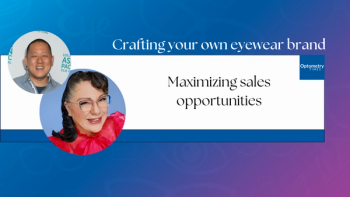
AREDS 2 changes treatment in unexpected ways
San Diego-“Finding inexpensive, safe strategies to prevent AMD is paramount,” said Steve Ferrucci, OD, FAAO, in his lecture yesterday at the American Optometric Association meeting. Dr. Ferrucci is chief optometrist at the Sepulveda VA in Los Angeles, and is associate professor at Southern California College of Optometry. The course, Nutritional Options for AMD, highlighted how AREDS 2 is changing current thinking about nutritional supplements in ways many eyecare practitioners had not anticipated.
As Dr. Ferrucci noted, we will see increase in the prevalence of AMD as the population ages. That means patients will be using supplements for many years, making safety and price big issues. Long-term strategies are therefore essential, said Dr. Ferrucci. “Optometry needs to be at the forefront,” he said.
“By the time you are at the retinal specialist, it’s too late. Retinal specialists treat. We prevent.” But, he explained, clinicians’ prevention techniques may need to change now that the AREDS 2 results have been released.
The AREDS 2 study sought answers to a number of important questions including:
- Can you eliminate beta-carotene?
- Can you reduce zinc?
- What is the effect of supplements on cataracts?
- What is the effect of lutein, zeaxanthin and omega-3 on AMD?
Much to many clinicians’ surprise, the addition of lutein and zeaxanthin to the original AREDS 1 formula did not further reduce the risk of progression to advanced AMD. However, the report does conclude that, to improve the safety of the formula, lutein and zeaxanthin are appropriate substitutions for the beta-carotene in the current AREDS 1 regimen. In this way, lutein and zeaxanthin provide an additional 10% reduced risk over current supplements. In patients with the lowest dietary intake of lutein and zeaxanthin, there was an additional 26% reduced risk. In patients with the highest dietary intake, lutein and zeaxanthin supplements provide no reduced risk of progression.
AREDS 2 also found that decreasing zinc from 80 mg to 25 mg had no effect. The study also found that there is no effect with DHA/EPA omega-3s. If you are still suggesting Omega 3s, Dr. Ferrucci strongly suggested that clinicians recommend 1000 mg per day and that it be at least 2/3 DHA and EPA.
Like AREDS 1, this more recent study does not provide sufficient evidence that patients with early stage AMD or those at risk for AMD can benefit from supplements. That being said, Dr. Ferrucci has a conversation about supplements with all early stage patients. If you don’t do this, he warns, you risk that patient hearing about vitamins from a friend. If that happens, the patient could lose faith in you as a doctor or, worse-they might self-prescribe an inappropriate product, such as one with beta carotene in a smoker.ODT
Newsletter
Want more insights like this? Subscribe to Optometry Times and get clinical pearls and practice tips delivered straight to your inbox.













































